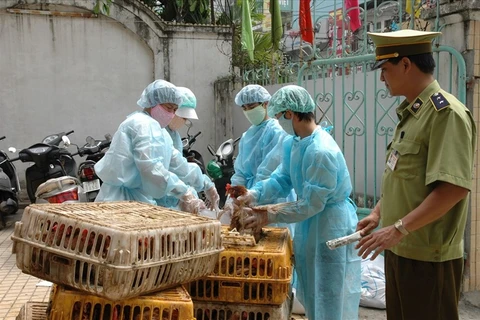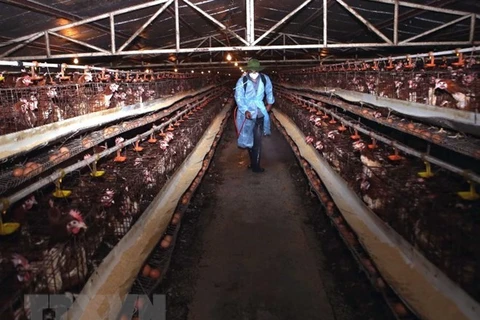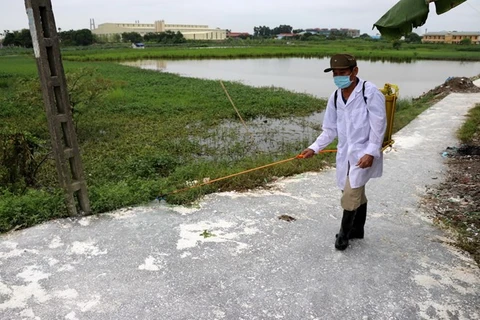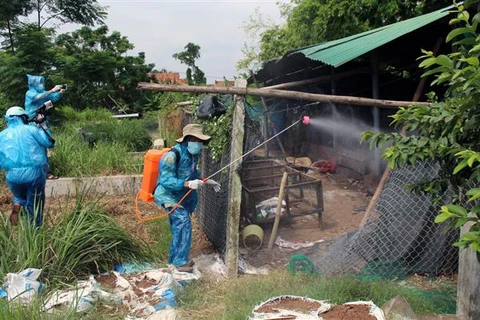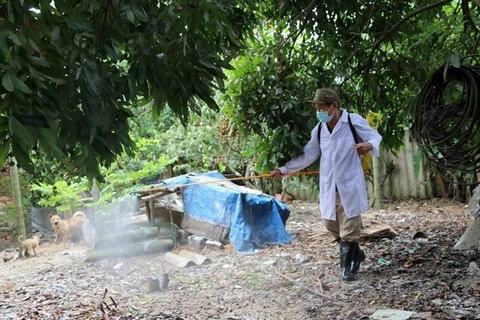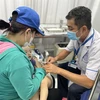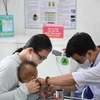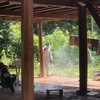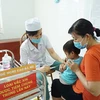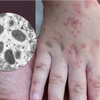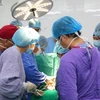HCM City (VNS/VNA) - Authorities in southern provinces and cities are taking necessary measures to prevent diseases in poultry and transmission to humans.
The weather in the south is now in a transition period, which is creating favourable conditions for the development of diseases if effective measures are not taken.
From now until the end of the year, the Mekong Delta province of Kien Giang will strengthen preventive measures to prevent A/H5N1 avian influenza and avoid new outbreaks next year.
The province’s Sub-department of Animal Husbandry and Health has coordinated with localities to provide H5N1 avian flu vaccines to its 15 local districts and cities, especially in poultry farming areas and breeding grounds.
At the same time, the sub-department is also cleaning and disinfecting the environment in hatcheries, breeding facilities, slaughterhouses, and trade and transport of poultry.
It is also raising awareness among poultry breeders and the public about the risk of avian influenza A/H5N1.
Local authorities have coordinated with agencies to protect poultry flock and ensure hygiene and food safety for consumers, especially for the Christmas, New Year and Tet (Lunar New Year) holidays.
The provincial Department of Agriculture and Rural Development has directed districts, communes and wards to promptly detect and handle new outbreaks and prevent the spread of disease.
Around the end of October, Hon Dat district’s animal husbandry division recorded three H5N1 outbreaks in Binh Son commune and Soc Son town.
About 750 chickens at three breeding households were culled. All samples taken from the outbreaks tested positive for avian H5N1.
The district’s People’s Committee directed branches and localities to step up avian-flu prevention measures and stamp out outbreaks of the disease, destroying chickens infected with A/H5N1, and disinfecting poultry areas, to avoid a large-scale outbreak.
Meanwhile, the central province of Binh Thuan has taken measures to prevent and combat diseases as well as minimise outbreaks in cattle and poultry until the end of the year.
Veterinary services have disseminated information in the community about the need for preventive measures and the effects of avian influenza.
Local livestock producers have been asked to strengthen the implementation of the “Five-No’s”: do not eat free-range poultry; do not trade in dead poultry; do not eat sick or dead poultry; do not hide epidemics; and do not throw away infected poultry in the environment.
People should immediately report to local officials if they have detected poultry that is sick or dead for an unknown reason.
The provincial Sub-Department of Animal Husbandry and Health plans to coordinate with localities to conduct regular inspections of hygienic conditions at poultry farming households and large-scale livestock farms.
Checkpoints will be set up to strictly handle all cases of illegal transport, trading and slaughtering of poultry illegally imported without a quarantine certificate.
More than 14 million doses of vaccines against bird flu for poultry and over 177,000 doses of vaccines for cattle have been given across the province.
The department has coordinated with localities to organise the second stage of an action month on hygiene and environmental disinfection with more than 1,900 litres of antiseptic used to reduce pathogens in the environment.
Thanks to preventive measures, no outbreak of dangerous diseases has been recorded in the province since the beginning of the year.
However, some common infectious diseases such as hemorrhoids, cholera and pneumonia have occurred, scattered through Ham Tan and Ham Thuan Bac districts and Phan Thiet city.-VNS/VNA
VNA

